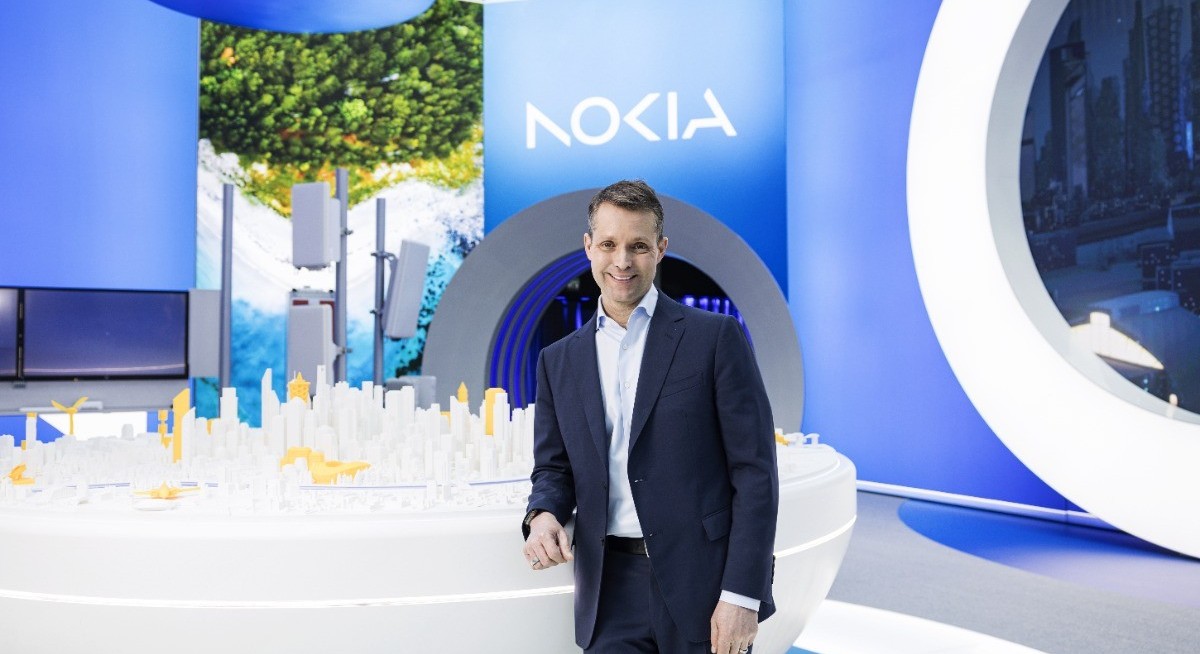Nokia will generate annual operating profit in the range of €2.7 billion and €3.2 billion by 2028, the company announced.
The Finnish company plans to sell off under-performing parts of its business and restructure its four existing segments into two main divisions — mobile networks and network infrastructure.
The network infrastructure unit will primarily encompass Nokia’s optical networking business, supplying fibre connections that can carry large volumes of data required for AI workloads. The mobile networks unit comprises Nokia’s established business supplying the backbone kit for phone connectivity.
The move, which takes effect from January, will align the company “where we see the opportunity,” said Hotard.
See also: Nvidia-led boom set to turn chips into trillion-dollar industry
“We’re doubling down on being a focused connectivity infrastructure provider — you can’t win in connectivity without winning in AI,” he said.
Once an iconic mobile phone brand and Europe’s most valuable company, Nokia has struggled in recent years to convince investors that its main mobile network business can fuel growth. It’s now trying to benefit from the AI boom by helping to connect hundreds of billions of dollars worth of physical infrastructure that’s fuelling the technology.
AI and cloud customers accounted for 6% of the company’s net sales in the third quarter, but executives hailed the sector as “the biggest opportunity” for the business.
See also: TikTok hit by EU ultimatum over addictive design dangers
Nokia recently struck a US$1 billion deal with Nvidia Corp, the world’s most valuable firm, giving the chip giant a 3% stake in the company.
Nokia last year bought Infinera Corp to expand into networking products for AI data centres, and hired Finland’s former ambassador the US to market defence connectivity to governments.
The AI-focused unit will continue to be led by David Heard, and will include Nokia’s cloud and network services business. The head of that business, Raghav Sahgal, will become Nokia’s chief customer officer.
The company anticipates operating sales growth from sales of its optical networking kit to tech companies. Hotard said he also expects its IP switching and routing business to continue growing, and customers will need to upgrade their fibre access networks.
Hotard said the mobile networks business is “flat” but will undergo changes to reorient around AI. It will absorb Nokia’s profitable patents department, Nokia Technologies, from Jan 1. Hotard will lead the unit on an interim basis after the departure of its top executive Tommi Uitto.
“Overall, when you look at the business, the business hasn’t generated an acceptable return, not for us, certainly not for our shareholders,” Hotard said. It’s a “great core technology, but not yet a great business, and I think the principle there is we need to build a better business in the portfolio rather than necessarily just a larger one.”
Nvidia chips are already being used to help Nokia bolster the radio parts of its 5G and 6G networks, part of the business that has seen “challenges” according to Hotard.
To stay ahead of Singapore and the region’s corporate and economic trends, click here for Latest Section
Nokia’s defence business will remain a standalone unit, describing it as an “incubator”. Hotard said the company will continue to push into the sector and make use of “what we have in the portfolio” but it is not expected to generate revenue comparable to the other segments.
Hotard said he also wants to sell off four smaller under-performing assets such as its 5G WiFi offer called “fixed wireless access” and microwave business that connects base stations to the core.
Uploaded by Felyx Teoh




